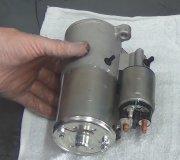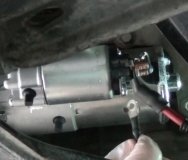First we have to determine if the battery is being run down by a drain when everything is supposed to be off, or if it is not getting recharged by the alternator when the engine is running. Start by measuring the battery voltage with an inexpensive digital voltmeter. A good, fully-charged battery will measure 12.6 volts. A good, but run-down battery will read close to 12.2 volts. That one needs to be charged at a slow rate for an hour or two. If you find it near 11 volts or less, it has a shorted cell and must be replaced.
Once your battery is at 12.6 volts, there will be no problem cranking the engine if the cables and connections are in good shape. When the engine is running, measure the battery's voltage again. You must find between 13.75 and 14.75 volts. If the voltage stays around 12.6 volts or less, the alternator is not recharging the battery. At most you will get about an hour of driving time before the battery runs out, and less if the heater fan, head lights, radio, or other accessories are on. If the voltage is within that acceptable range, that just means the alternator is doing something. It still can have a problem that causes it to be able to deliver only one third of its rated current. That will also lead to a run-down battery, but it will take longer for that to occur.
Wednesday, August 26th, 2015 AT 5:19 PM



